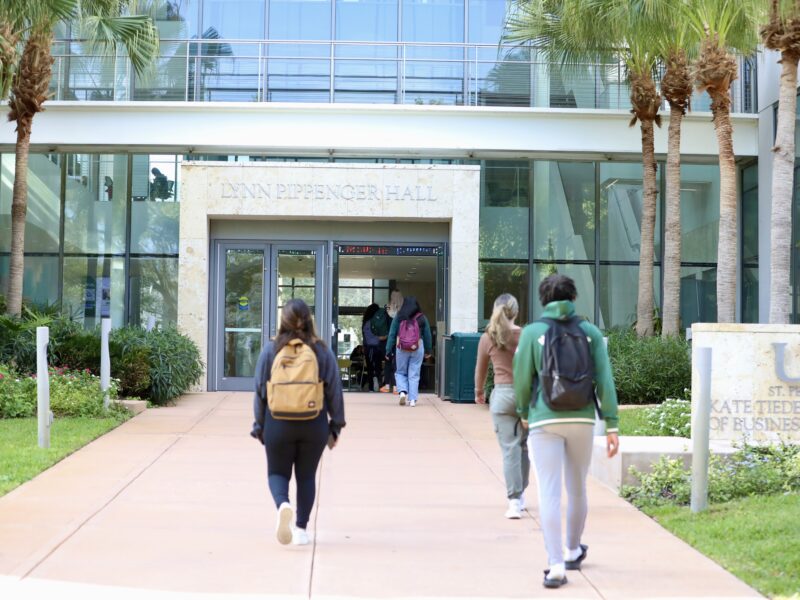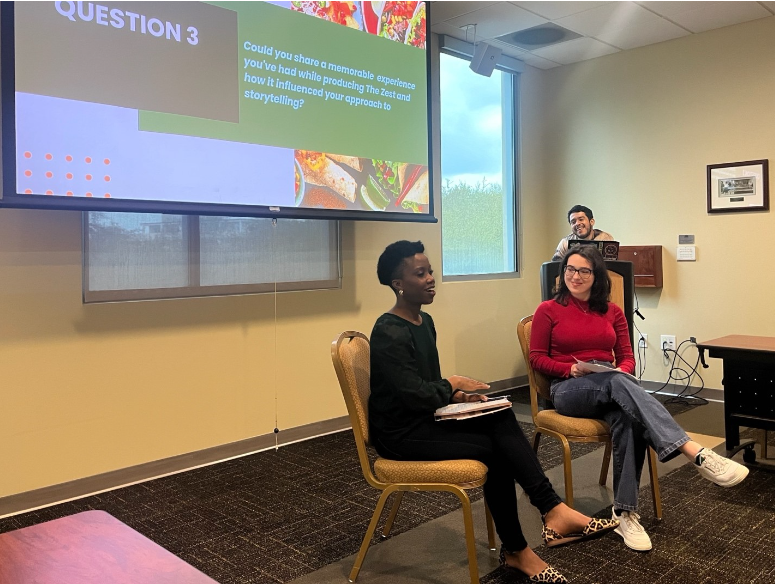As crime and tragedy strike every day across the United States, it’s easy to forget about the ongoing problems.
But members of the USF St. Petersburg club Charitabull have pledged to support the residents of Flint, Michigan. For over a year, the city has had extremely limited access to clean drinking water due to severe contamination of Flint River, the area’s primary source of water.
Charitabull, a group dedicated to community service and outreach, will launch a fundraiser with one simple goal: send as much clean water to Flint as possible.
In the next two to three weeks, the club will collect cases of water from local businesses and around the USFSP community in an effort to bring aid to Flint residents.
The organization is seeking help from the university’s students, in particular.
Students will receive a raffle ticket for every bottle they donate, which can be entered to win one of several prizes, including gift certificates to Dunkin Donuts, The Grind and The Tavern.
The club has also created a GoFundMe page, with the goal set at $500, to help purchase additional cases.
USFSP student Noora Khalil, Charitabull’s founder and president, said that although the incident isn’t nearby, the campus should still come together to help those in need.
“Had this happened in St. Petersburg, I would hope that, as Americans, we would come together and help in a time of crisis,” said Khalil, 22. “When we look at the bigger picture, we’re all living on this planet together and should look out for one another.”
Since switching the main water source from a Detroit treatment facility to the poorly controlled Flint River in 2014, the area has been left with dangerously contaminated drinking water. The transition caused a wide range of lead-related health problems and a possible outbreak of Legionnaire’s disease, a rare type of pneumonia.
Between 6,000 and 12,000 children have been exposed to lead-contaminated water, according to NBC News. Very young children are the most vulnerable to poisoning, as the heavy metal irreversibly deteriorates developing nerve cells and brain tissue.
“As students who are looking to grow professionally and intellectually, it’s important to be aware of social issues,” said Khalil. “People just like you and I are lacking a basic necessity for survival, and we are privileged enough to be in a position to help.”
On Jan. 16, President Obama declared the crisis a federal emergency, and while the situation is expected to see an eventual end, the impact is everlasting.
Elisa Duka, a student government senator and Charitabull member, said the club’s purpose isn’t only to service the local community, but to anyone in need.
“I think that the people of Flint have asked for help and we’re just being attentive to our friends over there who need it,” said Duka, 19. “After all, every little bit counts.”
Information from NBC News and flintwaterstudy.org were used in this report.



